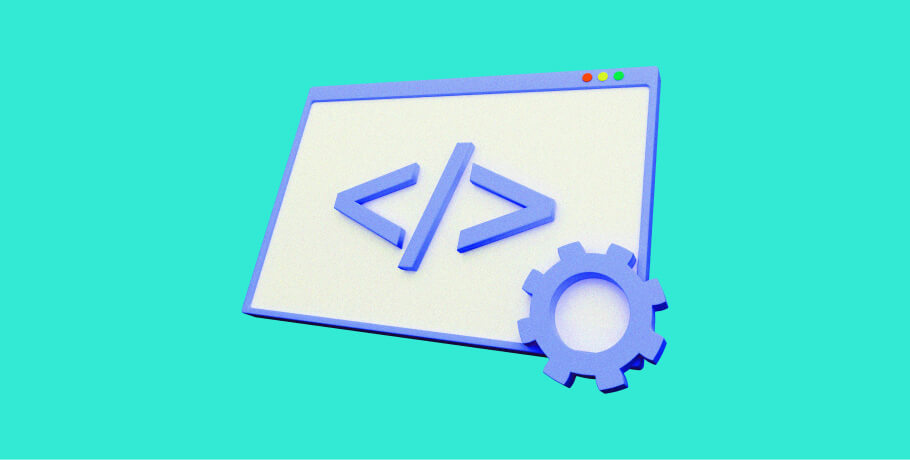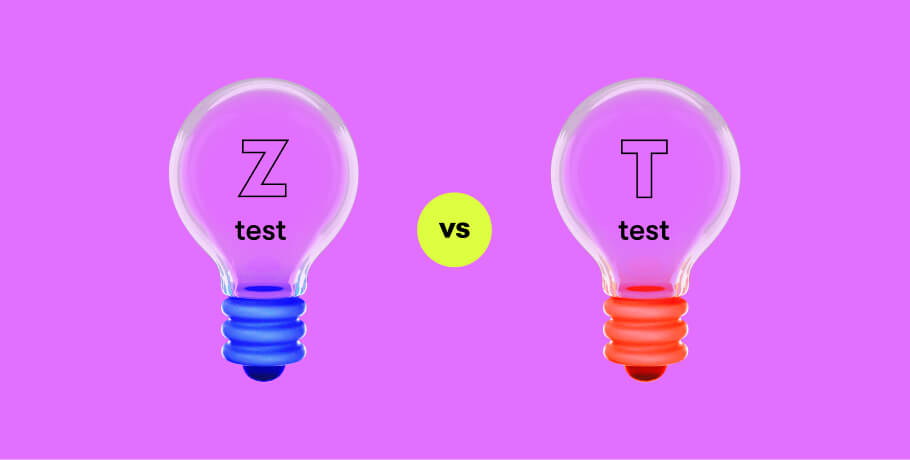DevOps is a powerful and advanced technology solution, the implementation of which requires a certain set of skills depending on the specific project and business tasks. The first and foremost thing employers consider when choosing DevOps engineers is the technical (hard) skills associated with theoretical knowledge, instrumental practices, and technical experience.
Another important factor is soft skills associated with personal characteristics.
DevOps engineers come in different levels and statuses, and the choice depends on the tasks, goals, and needs of the project.
Depending on the tasks and business goals, the successful implementation of a DevOps project requires different competencies.
DevOps is more than just another technological trend that will die in a few months — it is a vital set of processes for optimizing the operations to speed up development. Depending on business tasks, specific DevOps skill sets are required, differing from project to project.
However, some competencies and skills are common for any project and essential for any company's success.
DevOps is one of the most high-paying roles that the IT industry is looking for. Keep reading to learn about the essential skills to make it in the job market.
DevOps technical skills
The first things employers look for in an engineer are hard DevOps developer skills that should correspond to the project's needs, tasks, and goals. Here are the top ones you can come across in DevOps job descriptions.
Knowledge of various DevOps tools and technologies
Being aware of the relevant tools, solutions, and concepts makes a DevOps engineer a true professional. The success of implementing these practices depends entirely on the set of tools used at different stages of the project.
A DevOps engineer must know how to use a chain of complex tools such as version control, continuous integration servers, configuration management, automation processes, database administration, monitoring and analytics, testing and cloud technologies, Infrastructure as Code tools, and so on.
DevOps engineer required skills include understanding the roles of each tool in the chain, considering all dependencies, and ensuring that all solutions are fully combined at different stages of development and operations. This approach leads to the successful implementation of this methodology.
Continuous integration and continuous delivery
Continuous integration and continuous delivery (CI/CD) are the core of DevOps. This means seamlessly integrating all code from different developers, continuously testing it, and deploying successful code to production. CI (Continuous Integration) automates code integration into a single piece of software, allowing data to be efficiently combined. On the other hand, CD (Continuous Delivery) allows different tools and systems to be combined to create fully functioning and consistent delivery pipelines.
So, continuous integration and continuous delivery are among the key DevOps technical skills. Engineers must be aware of tools such as VSTS, Bamboo, Jenkins, GitHub, GitLab, Spinnaker, Travis, AWS CodeDeploy, AWS CodeBuild, AWS CodePipeline, and others.
Automation
Facilitating work and automating all processes is one of the key tasks of DevOps. A high-quality and skilled engineer should be able to automate the entire pipeline, including continuous integration and delivery, application performance tracking, infrastructure, configurations, and so on. The automation skill set is closely related to knowledge of the necessary toolset, coding, and scripting languages. Automation technologies and tools facilitate all manual tasks and workflows, resulting in faster software development and deployment.
To offer high-quality automation, an engineer will need the knowledge and skills of bash, GNU, Python, JavaScript and PowerShell utilities, cron, AWS Lambda, CloudWatch Events, SNS, and others.
Coding and scripting
While programming skills are required for all development approaches, DevOps engineers play an essential role in writing code. The key tasks here are the organization of a stable, efficient, and maximally automated pipeline or the creation of new solutions that can automate the pipeline stages to optimize the team's work.
A good engineer must work with multiple languages such as Java, JavaScript, Ruby, Python, PHP, Bash, Shell, Node.js, and more.
Cloud
DevOps and the cloud are not just closely related, but the performance of one is directly dependent on the other. If DevOps solutions manage the process, then the cloud implements this process, giving it the right environment for testing, deploying, and releasing code. Cloud computing skills and experience enable you to design and create your own cloud systems, simplify complex cloud systems, and enforce best practices across a wide range of cloud service offerings.
Today's main cloud services are Microsoft Azure, Google Cloud, Amazon Web Services, and IBM.
Testing
The success of DevOps depends on the quality and proper testing. Automated tests should run permanently and without failures. Continuous testing can significantly reduce the time to receive feedback after testing the code. DevOps specialists' main task is to speed up the delivery of the end product to customers as quickly as possible. And the quality of the software or application plays a key role here.
Engineers should constantly test their work and be familiar with automated continuous testing tools such as Selenium, TestComplete, TestingWhiz, as well as continuous monitoring tools like Nagios, Zabbix, Splunk, and so on.
Technical support and maintenance
The scope of DevOps professionals is not limited just to the development environment. Good engineers support the entire process, fix issues when they occur, and keep production systems up and running, using customer-centric capabilities. This means that engineers must monitor products in real-time, receive instant alerts in case of failures and errors in operation, and solve problems through online support or technical troubleshooting.
DevOps management is impossible without continuous technical support and maintenance, making it one of the most important skills needed for DevOps engineers.
Security
Security and protection are vital criteria when developing and deploying code. And this means that engineers must have the security knowledge and skills to write highly secure code. This minimizes risk, protects software or apps from possible hacks and attacks, ensures a lower failure rate, and reduces defects throughout the end product's life cycle.
This DevSecOps skill set is a powerful competitive advantage of DevOps in the professional market.
DevOps essential skills
While all of the above features are a top priority in DevOps, there is more to come. To be successful, engineers must have not only instrumental and technical skills, but also essential soft skills. Let’s explore a list of the basic soft skills that help create value and boost the project to the next level.
Customer-focused approach
Engineers must make sure that everything they do is in line with user needs and values. So, DevOps professionals must communicate closely and work together with developers, testers, project managers, and others towards a common goal of achieving absolute customer satisfaction.
Clear communication and collaboration
DevOps is a methodology aimed at interacting with programmers and system administrators. Thus, enhancing communication and collaboration is vital to keeping teams in sync. Remember that DevOps specialists do not work for their own goals but the interests of the whole team and to achieve one common goal. This cultural aspect is one of the most important skills required for a DevOps engineer.
Creativity
Curiosity and creativity are indispensable aspects of any activity in the field of technology. It’s expected that you, as a DevOps engineer, don’t have all the answers. You are expected to explore and apply creative thinking. Channel your ideas into out-of-the-box solutions, develop creative skills, push the boundaries of your potential, and experiment with different approaches and various solutions, but don’t go beyond the limits. And remember that DevOps is a creative process that plays by strict rules.
Proactiveness
DevOps engineers must always be self-motivated, passionate, learnable, innovative, and proactive. The desire to constantly learn will allow specialists to stay up to date with new technologies, progressive solutions, and relevant tools, which is a must-have in such a rapidly growing environment. Remember that you will never know everything in the ever-evolving technology industries — DevOps is a path of constant growth.
DevOps skills by seniority
Let’s analyze the necessary skill set according to seniority.
Junior DevOps
The main task of DevOps engineers at any level is to make software development as predictable, efficient, and safe as possible. And the junior specialists play a basic role in all this — typically, in the tasks of novice specialists, they distinguish:
- server administration and maintenance;
- configuration management — installation and configuration of infrastructure;
- implementation and management of CI/CD;
- setting up monitoring;
- solving problems with simple scripts;
- creation and maintenance of environments on cloud platforms;
- process automation;
- ensuring and adhering to security, confidentiality, and customer data protection procedures.
Middle DevOps
The tasks of middle-level specialists are broader. The following DevOps engineer skills can be added:
- full responsibility for the infrastructure: creation, configuration, automation, design, and implementation of complex infrastructure solutions;
- implementation, support, and improvement of CI/CD pipelines;
- deploying software in multiple operating environments, installing, and configuring application environments;
- team training in DevOps processes;
- troubleshooting in highly loaded systems;
- implementation of practices in matters of system scalability;
- analysis of unplanned events and incidents to determine the next steps that will make the product more reliable.
Middle-specialists are engaged when tasks require a complex approach. DevOps engineers at this level are fully responsible for the infrastructure, teach DevOps practices to other team members, work with high loads, and deal with scaling, analyzing, and strategizing.
Senior DevOps
Senior DevOps tasks are on an entirely different level. These essential DevOps skills include:
- not just the ability to work with cloud infrastructure, but also the ability to create it: design, creation, migration, containerization, and cloud modernization;
- application infrastructure design using microservices architecture;
- automation of operational processes;
- improving the security, reliability, scalability, performance, and quality of the system;
- development of applications to improve monitoring and system performance;
- troubleshooting and resolving issues across multiple environments.
The main difference between the tasks of a senior engineer and a middle one is that they become even wider: microservices are added to them. And this requires an entirely different approach compared to less experienced professionals.
A DevOps expert
The main difference between specialists of different levels is the amount of their experience. Both a novice specialist and an experienced one can deal with the same task, but the approaches to the solution will be completely different.
Engineers of this status can effectively work on several projects or initiatives simultaneously without any guidance or instructions. Expert-level DevOps specialist’s skills also include the ability to work with abstract and vague problem spaces and a clear understanding of when to ask for business and technical requirements and when to make technical decisions based on research and evidence.
Conclusion
The success of implementing DevOps solutions directly depends on different specialists working together to achieve one goal. The market is constantly evolving, transforming the responsibilities and skill sets of DevOps professionals. And even though this primarily depends on the project's specifics, some things are always true: a good engineer must have a sufficient level and balance of hard and soft skills.
FAQ

The EPAM Anywhere Editorial Team is an international collective of senior software engineers, managers and communications professionals who create, review and share their insights on technology, career, remote work, and the daily life here at Anywhere.
The EPAM Anywhere Editorial Team is an international collective of senior software engineers, managers and communications professionals who create, review and share their insights on technology, career, remote work, and the daily life here at Anywhere.
Explore our Editorial Policy to learn more about our standards for content creation.
read more


















